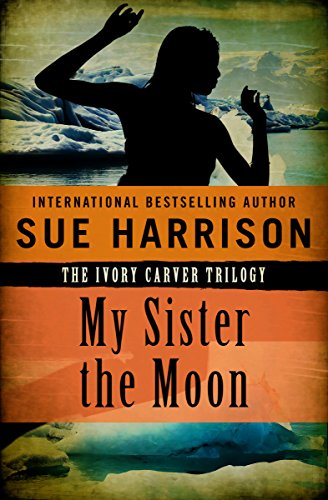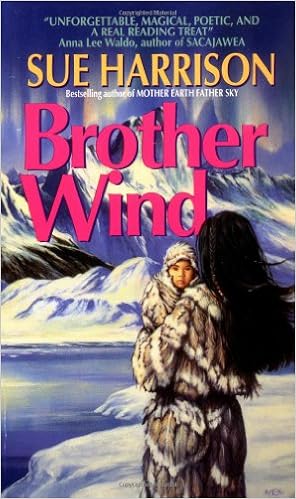
Description
“Sue Harrison joins the ranks of Jean Auel and Linda Lay Shuler.” — The Houston Post “A remarkable storyteller . . . a worthy and welcome sequel . . . Readers will again be caught up in Sue Harrison’s literary spell . . . One wants to stand up and cheer.” — Detroit Free Press “Harrison does prehistoric inner life better than anyone.” — Kirkus Reviews “This moving story keeps readers in its grip.” — Library Journal “ My Sister the Moon only whets the appetite for more.” — The Anchorage Times “An extraordinary new voice.” — The Denver Rocky Mountain News Sue Harrison grew up in Michigan’s Upper Peninsula and graduated summa cum laude from Lake Superior State University with a bachelor of arts degree in English language and literature. At age twenty-seven, inspired by the cold Upper Michigan forest that surrounded her home, and the outdoor survival skills she had learned from her father and her husband, Harrison began researching the people who understood best how to live in a harsh environment: the North American native peoples. She studied six Native American languages and completed extensive research on culture, geography, archaeology, and anthropology during the nine years she spent writing her first novel, Mother Earth Father Sky , the extraordinary story of a woman’s struggle for survival in the last Ice Age. A national and international bestseller, and selected by the American Library Association as one of the Best Books for Young Adults in 1991, Mother Earth Father Sky is the first novel in Harrison’s critically acclaimed Ivory Carver Trilogy, which includes My Sister the Moon and Brother Wind . She is also the author of Song of the River , Cry of the Wind , and Call Down the Stars , which comprise the Storyteller Trilogy, also set in prehistoric North America. Her novels have been translated into thirteen languages and published in more than twenty countries. Harrison lives with her family in Michigan’s Eastern Upper Peninsula. From Publishers Weekly While it successfully recreates the culture of the whale-hunting Aleuts of 9000 years ago, Harrison's sequel to Mother Earth, Father Sky (600,000 paperback copies in print) lacks the tense grittiness of its predecessor. Copyright 1992 Reed Business Information, Inc. --This text refers to an alternate kindle_edition edition. From School Library Journal YA-- Set in the prehistoric Aleutian Islands, this is a sequel to Mother Earth, Father Sky (Doubleday, 1990). At her birth, Kiin's father had planned on killing her so that his wife might immediately produce a son. She is saved, however, when the chief claims her as the wife for his infant son. Her life is one of difficulty and abuse--her father beats her regularly and gives her to traders for the night to improve his exchanges--but her inner strength enables her to survive through the turbulent, stormy times. This moving story keeps readers in its grip because every hint of peacefulness is upended by another difficulty. Although YAs will enjoy this novel as much as its predecessor, it is more disturbing as the excellent characterizations involve readers significantly, causing them to share the tense emotional drama with Kiin. - Jacque line Craig, W. T. Woodson High School, Fairfax, VA Copyright 1992 Reed Business Information, Inc. --This text refers to an alternate kindle_edition edition. From Kirkus Reviews A second foray into prehistory by the author of Mother Earth Father Sky (1990). And we're definitely talking prehistory, circa 7000 B.C., in the Aleutian Islands, where the sons of the orphan Chagak and her chieftain husband, Kayugh (both of the First Men tribe, and from Harrison's first book), share a passion for the same woman--Kiin, the viciously abused daughter of Grey Bird. When Kiin was just a babe, Kayugh promised her father that he'd marry her to one of his boys--and it's expert knifemaker-son Amgigh who gets her because his brother, Samiq, must go to the island of the Whale Hunters to learn how to hunt the whale, a skill that he's to bring back to his own people. But before Samiq goes, Amgigh lets him sleep with Kiin (as is the right of a husband). Then, however, Kiin's abducted by her awful brother Qakan (who tells Amgigh that she has died). He rapes her and sells her to Raven, a would-be shaman among the Walrus People who thinks that the twin sons Kiin bears will bring Raven power. But when Qakan falls out with the Walrus People, he steals Kiin again, resulting in his long overdue death at Raven's hands and a reunion between Kiin and the First Men. And this is where one would think the story would end, except that Harrison has a few more tricks up her sleeve--of the sibling Sturm und Drang nature--meant to make followers queue up for book three. Harrison does prehistoric inner life better than anyone, and Kiin's abuse strikes familiar chords without seeming at all anachronistic. The author is not, however, a master plotter, which frustrates but still shouldn't keep prehistoric-fiction fans stuck in their Jean Auel. (Literary Guild Dual Selection for May) -- Copyright ©1992, Kirkus Associates, LP. All rights reserved. --This text refers to an alternate kindle_edition edition. Read more
Features & Highlights
- In prehistoric Alaska, an Aleut girl, unwanted and abused, changes the destiny of her tribe
- Gray Bird wanted only sons. His daughter, Kiin, would have been killed at birth to make way for a male heir if not for the tribal chief, Kayugh, who claimed the infant as a future wife for one of his two young sons. Sixteen years later, Kiin is caught between the two brothers: one to whom she is promised, the other whom she desires. But the evil spawned by her own family takes her far from her people to a place where savage cruelties, love, and fate will strengthen and change her, and lead her to her ultimate destiny.
- My Sister the Moon
- is book two of the Ivory Carver Trilogy, which also includes
- Mother Earth Father Sky
- and
- Brother Wind.





